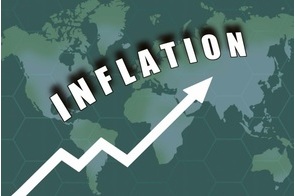Latest News
Nigerian industrial stocks recorded worst performance in 2016 – Onyema

News Highlight
- As his outlook for 2017, Onyema expects market activities to improve as monetary policy authorities plug the gap between the official and black market exchange rates.
The Chief Executive Officer of the Nigerian Stock Exchange, Oscar Onyema, said on Thursday that industrial companies listed on the NSE were the worst performing group of stocks in 2016. Onyema attributed the dismal performance of the industrial stocks to the severe foreign exchange liquidity challenges experienced last year, which restricted the importation of vital raw materials.
“The NSE Industrial Index recorded the steepest drop of the year at 26.37 percent, a result of severe difficulties faced by companies in accessing capital for imported raw materials,” Onyema said in a presentation on the 2016 market recap and outlook for 2017 posted on the NSE’s website.
Besides the industrial stocks, the NSE CEO also said oil and gas stocks declined by 12.31 percent, indicating the capital market’s link to the economic conditions facing Nigeria caused mainly by the slump in global oil prices.
Given the high rate of inflation prevalent in the economy last year, Onyema said the value of bonds on the market depreciated, increasing investors’ appetite for portfolio diversification via interest rate products selling at discounts.
“This resulted in a 137 percent increase in the value of bonds traded on the NSE in 2016, admittedly from a low base,” Onyema said. “We also saw a 31.17 percent improvement in bond issuance during the year.”
Onyema further noted that after peaking in mid-2016, the All Share Index – the NSE’s main index – retreated into negative territory as foreign inflow dropped 45 percent between June and July. Foreign portfolio inflows and domestic trading activity declined by 69.79 percent and 56.79 percent, respectively, according to the NSE boss.
Onyema attributed the fall of the ASI to three factors: (1) the loss of confidence in the implementation of an announced free floating FX regime, (2) weak corporate performance, and (3) the economy entering a recession after two consecutive quarters of negative economic growth.
As his outlook for 2017, Onyema expects market activities to improve as monetary policy authorities plug the gap between the official and black market exchange rates.
“We expect investors to continue to keep a close eye on the divergence between the interbank FX rate and other exchange rates in the country,” Onyema said. “Accordingly, a convergence of FX rates in the country and the performance of listed corporates will determine the level of market activity in the short term.”
Related News
Latest Blogs
- AML/CFT regulations and data protection require balance in regulating cryptocurrency
- It's time for honest discussions on Nigeria's security architecture
- Driving economic growth through green transition in Nigeria
- CBN is fighting inflation instead of stagflation
- Why electricity privatization failed (2)
Most Popular News
- IFC, partners back Indorama in Nigeria with $1.25 billion for fertiliser export
- NDFF 2024 Conference to boost Nigeria’s blue and green economies
- CBN increases capital requirements of banks, gives 24 months for compliance
- CBN settles backlog of foreign exchange obligations
- Univercells signs MoU with FG on biopharmaceutical development in Nigeria
- Ali Pate to deliver keynote speech at NDFF 2024 Conference






